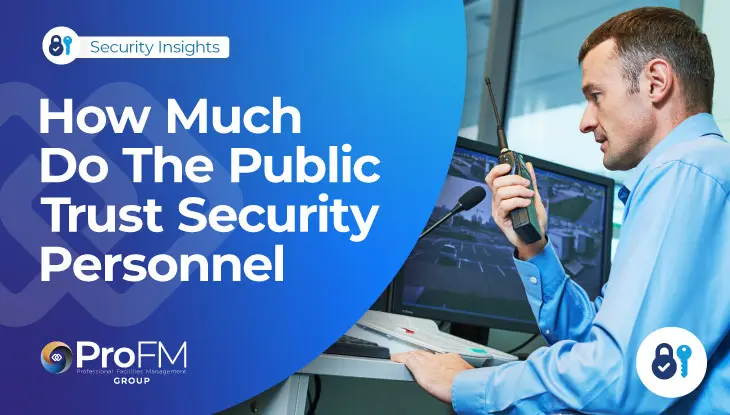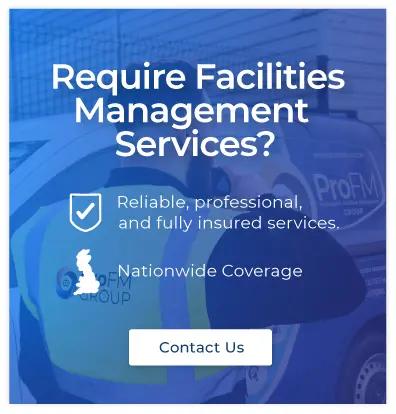On the 5th November, 2025, the Security Industry Authority (SIA) made the official announcement that they’d be conducting an in-depth “strategic review of the qualifications and training required to apply for an SIA licence”.
It’s a step up from the usual review that’s conducted every 5 years, and represents a commitment to the betterment of the security industry. That comes alongside a continued push for providers to be registered as part of the Approved Contractor Scheme (ACS), which further instils public confidence in security services.
While it is still in the early stages, with an expected completion time of late 2026, the review purports to provide security professionals with the “safety-critical skills needed to keep the public safe”. It also seeks to offer more clarity to training providers on what officers need to know to effectively complete their duties, as well as how security providers like ourselves can support.
What Are The Proposed SIA Licence Changes?
As part of a review that began in late 2025, the SIA is looking to review and subsequently implement multiple new initiatives, as well as updates and amendments to existing training. That includes:
- Any newly required core content for the licensing process
- Necessary changes to “safety-critical” skills, such as physical intervention and stop-and-search
- Counter terrorism guidance, in line with the Terrorism (Protection of Premises) Act 2025 (also called Martyn’s Law)
- Guidance around social media auditors and new technologies (AI, for example)
- Awareness around spiking and specialist search techniques for wheelchair users
- Refining and updating how first aid skills are delivered
- A further emphasis on functional English language skills
These are subject to review at the time of writing, and are being closely monitored in line with key partners of the SIA. That includes training providers (such as GetLicensed or the British Institute of Innkeeping Awarding Body (BIIAB)), government officials, and charitable initiatives like the Armed Forces Covenant.
As part of this, training providers are also set to be scrutinised, with the review set to cover key aspects such as:
- New technology to help deter, prevent and punish cheating
- New quality requirements for training providers (still to be determined)
- Reviewing occupational expertise and trainer qualifications
This all contributes towards a safer and more robust approach to professional security. The governmental release states as much, discussing the importance that “qualifications keep pace with a continually complex, challenging and changing modern protective security landscape”.
Why Are These SIA Licensing Changes Happening?
These have been a long time coming and, while security providers like ProFM Group have sought to provide additional training, support and guidance to their officers, there needs to be consistency across the industry. That’s not just for the training officers receive, but for the standard of security services that buyers and clients can expect.
A changing political landscape, as well as newly introduced laws like the Protection of Premises Act 2025, also means that security officers are expected to do more than ever. We’ve seen this firsthand, with our National Operations Centre reacting quickly and decisively to planned protest action at one of our major client sites in South Wales.
Michelle Russell, the SIA’s Chief Executive, summarises it best in her statement as part of the announcement.
“As the demands on private security operatives keep changing, their skills and knowledge need to keep pace too. This review represents a strategic reset and comes at an important time for the security industry.”
Consistency is, as we’ve seen time and time again, crucial in the security industry, and often leads to a more comprehensive approach to protecting property, people and assets. These changes are designed to level the playing field and ensure a stellar standard of service for those looking to invest in professional security solutions.
It’s also in response to communication and the need for clarity from security personnel. A renewed emphasis on functional English skills, as well as additional first aid training, spiking awareness, and welfare and vulnerability engagement (WAVE), all point towards a more communicative and well-informed future for the security industry.
When Will These SIA Licensing Changes Happen?
This is still to be confirmed, especially as discussions continue, but the SIA have published an expected 18-month timeline as part of this initial announcement. As more information becomes available, there will likely be more confirmation of dates and change implementation.
Here’s a detailed breakdown of the milestones they’ve identified:
- November 2025 to January 2026 – Initial meetings and consultations to speak to those in the industry about their views of assessments, industry requirements and the content of qualifications. This will be conducted through online surveys and webinars, involving security companies, industry analysts, supervisors, leaders, frontline staff, and training providers.
- Early Spring 2026 (April – May) – A full public consultation on the proposed changes to the qualifications, licensing process, training, and any other notable adjustments. These are still to be confirmed.
- Summer 2026 (June – August) – Full publication of the SIA’s final qualification specifications, including what needs to become part of the training protocols, how that’s set to affect the industry, and any necessary accommodations for existing licence holders.
- Autumn 2026 – Spring 2027 (September – April) – Training providers must use this time to create new learning modules, materials and resources for new and existing SIA licence holders. Security providers need to use this to prepare their frontlines for how the new changes can impact their day-to-day duties, and how that information needs to be relayed to clients.
- Spring 2027 – All new qualifications and assessment criteria (including any new skills or expertise) are to become mandatory for all security professionals, training providers and security companies.
While this may seem like an extensive process, it’s grounded in providing training and assessments that are informed by real-world expertise. This is a sentiment shared by the SIA’s Director of Licensing and Standards, Tim Archer, who said:
“ We are putting the expertise of those specialists and security professionals at the heart of developing the new standards and requirements. These are the people who know and understand daily challenges of the job and what skills and knowledge are needed to do the job effectively and safely.”
As an industry leader ourselves, we’ll be at the forefront of understanding what these changes mean for us, how they’ll affect our clients and our officers, and how we can smoothly and effectively roll them out on a wider scale.
John Melling, our Chief Executive Officer and former frontline operative, welcomes the officer licensing review:
“In our modern world, private security officers are under so much pressure, and these proposed changes only serve to help them complete their duties safely, and with public protection in mind. We’ve always sought to be ahead of the curve for officer training and support, and adjustments like these are essential in standardising the services clients receive.”
 Sales:
0808 196 2872
Sales:
0808 196 2872
 Support:
0344 477 9991
Support:
0344 477 9991
 Contact Us
Contact Us
 Staff & Client Login
Staff & Client Login



